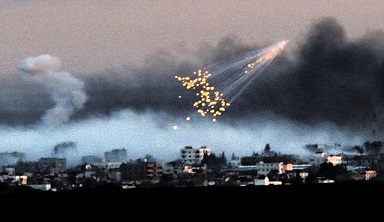On the Wisdom of Duration
Every artist, musician and scientist worth their salt knows that the only way to make anything of worth truly their own is through repetition. Archers, footballers, sabreurs and chess players also know this to be axiomatic. Meditators, dancers, surgeons and healers all understand that without constant repetition, one’s level of focus, attention and skill inevitably drop away.
Yet the present time conspires to have us all believe that transience is the new value by which we are to live. This is reflected in the acceptance of inevitable obsolescence in virtually all the fruits of technology; in the seamless daily media reports of crisis after crisis with little or no reflection, reconsideration or remembrance of the waves of influence that both create and reverberate from such crises; and in the obsession with speed and curtness of delivery that characterises our newly developed forms of electronic communication.
Mobile phone texting is creating new lexicons and grammars, while email has reduced textual communication to verbal transactions phrased in minimalist vocabularies. We have become travellers on an ocean of information that endlessly washes and occasionally storms through our lives. And if we are to accept conventional wisdom, it is all relevant. For today, at least. Tomorrow will bring its own new waves of relevance, and today’s relevancies will be forgotten.
One of the consequences of this popular enshrinement of transience and ephemerality is a deepening loss of connectedness with our own origins and even with the definitive experiences of our age. Some school teachers still take it upon themselves to transmit a remembrance of the profound calamity that befell Europe during the Second World War in the hope that their students will come to realise the undermining and overturning of all values that occurred under Hitler’s Third Reich. Yet for so many young people, Vietnam, Cambodia, Timor and Lebanon are simply names of distant places. Something happened in Gaza five years ago, and something else happened there around this time last year, but that was way back then.
Without consciously cultivating a sense of memory and duration, we too easily fall into a soporific drifting through time. We shrug our shoulders at the hopelessness of it all, disconnect ourselves from the lived realities that assail others and are benumbed to the images of pain and calamity that daily irrupt into the popular media.
We have lost our discernment, our capacity to know the difference between wisdom and folly, fairness and cruelty. We have lost our sense of outrage, our capacity to react to the abuse of vulnerable minorities by the powerful and the mighty. And we are in danger of losing our compassion, our capacity to feel the suffering of others.
It takes a strong act of will to remain abreast of the times, to maintain an inner brief to serve as active witness to the progressive and destructive forces that drive the experience of individuals, communities and populations during this time when we are all adrift. “To what end?” some may ask. That question cannot be answered without considering the further question of what we take to be truly important in human life.
If transience - the negation of duration and consequence - is the defining character of the times, then it follows that nothing really matters, apart perhaps, from those conditions and events that affect us personally. There is no sustaining story. We might as well just enjoy the ride.
If on the other hand, human existence is more than an ephemeron, more than the day-span between our first and last breath, more than the vapid efflorescence of a lifetime before the closure of eternal night, then we had better consider more carefully the purposes and intentions that we serve within the broader vistas of time.
The post-modernist relativisation of everything under the sun, with its curt dismissal of noble narratives and great stories as wishful projections of a railing but futile impotence, leaves us with nothing but our own desires and their satisfaction as the source of all meaning in human life and experience.
We need to look deeper, to examine and retrieve the understandings of the strong and questing minds that have preceded us whose traces have thankfully been carried into present time. We need to refamiliarise ourselves with the canonical texts and teachings that have provided nourishment and direction through the centuries of hardship and struggle endured by all peoples through all recoverable time. We need to recover the enduring archetypal myths of every culture that hold symbolic descriptions of the forces that move our lives and determine our futures. We need to reclaim the sources of wisdom that provide the moral directives that enable us to live together with some measure of peace, fellowship and mindful co-presence.
Such values will not and cannot emerge from the ten-second grab, from “official reports”, or from compliant journalists who serve the purposes of their political masters. Without active searching, one cannot uncover those sources committed to presenting historically informed, morally responsible and philosophically considered representations of the events and influences that determine the conditions of life and death for so many.
Without a grounding in such moral values as truthfulness, fairness, justice and service, all things become permissible. And that is precisely where we find ourselves in the present time.
Wars can be waged with brutal disproportionality and in total disregard of all existing laws that would safeguard non-combatants. Environments and ecosystems can be trashed and travestied without thought of longer-term consequences. Financial markets can be criminally manipulated so as to surfeit even further the obscenely wealthy and impoverish and immiserate the meek and the vulnerable. And public thought can be corralled and trivialised by a power-hungry and money-hungry mass media.
We need to refamiliarise ourselves with the enduring sources of discernment and morality in this time when everything has become permissible. We need to develop a will to understand more deeply the meaning of the present time.
___________________________________________________________________________________
Vincent Di Stefano is a retired practitioner of osteopathy and natural medicine and a former lecturer in health sciences, specialising in the western herbal medicine tradition, history and philosophy of medicine and qualitative research methods. His present interests relate to performance poetry, interpretation of William Blake's epic pieces and their eschatological implications, and a slow but steady translation of Dante's "Divina Commedia." His website Integral Reflections offers an extension of the ideas presented through "The Healing Project" website. These include the will to healing at personal, social, spiritual and environmental levels, the discussion of textual sources from which intellectual and spiritual nourishment can be drawn, the maintenance of a watching brief on the turbulent currents that course through the present times, and the exploration of poetic consciousness as a transmitter of the deeper dimensions of human experience.
___________________________________________________________________________________
Source: Integral Reflections. URL: http://www.a-w-i-p.com/index.php/2013/11/29/on-the-wisdom-of-duration




























